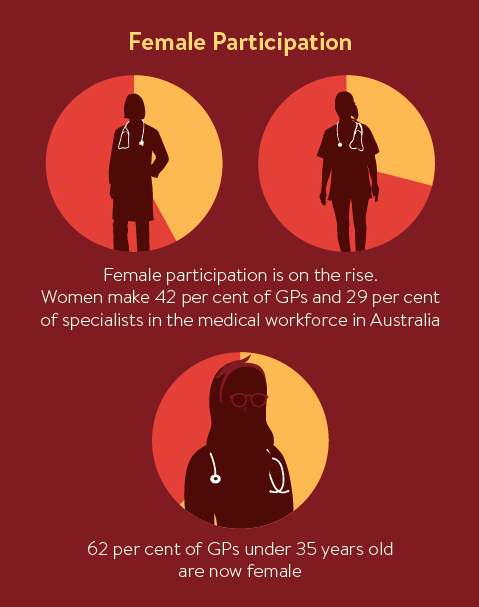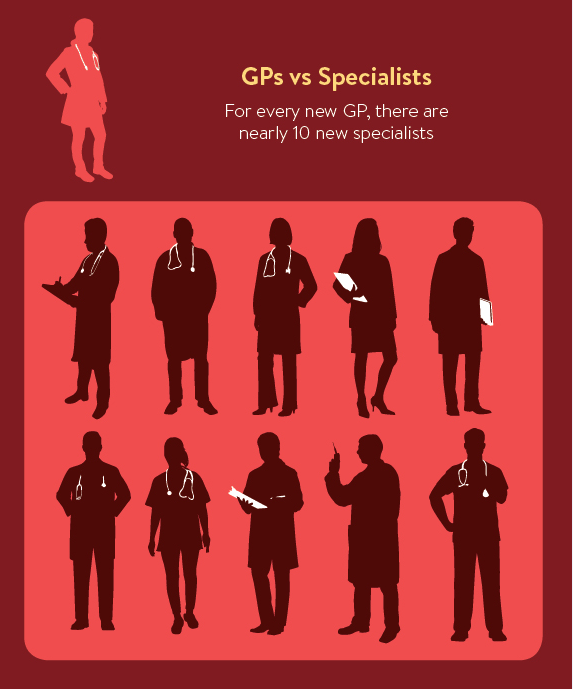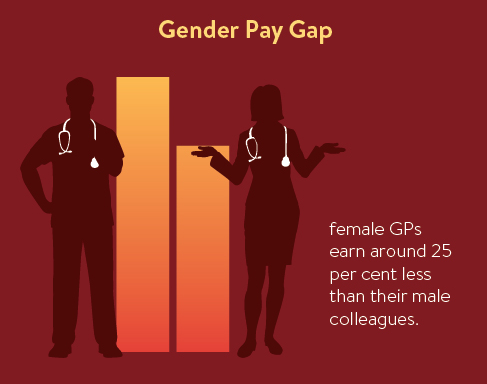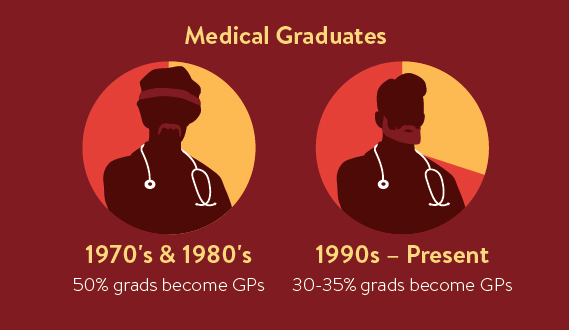-
Australia's health sector is grappling with a variety of challenges including an ageing population and growing burden of chronic disease.
" Specialists are paid two-to-three times more than GPs, partly reflecting… their ability to charge higher prices than GPs because of less competition."
Anthony Scott, Head of the Health Economics Research Program at the Melbourne Institute of Applied Economic and Social Research
General Practitioners (GPs) are playing an increasingly crucial role on the front lines of primary care, which accounts for more than 35 per cent of the health sector’s total $A162 billion annual expenditure.
The University of Melbourne and ANZ have produced a new research report to analyse key trends, including funding challenges and demographic changes in the workforce influencing the structure of the sector.
Professor Anthony Scott, Head of the Health Economics Research Program at the Melbourne Institute of Applied Economic and Social Research, sat down with BlueNotes to share key findings from the report.
Francesca Rizzo: From your research we can see there are several demographic changes in the GP industry, including more women working as GPs. Why do you think this is? And what other demographic changes have you seen?

Professor Anthony Scott: Increasing workforce participation by women is a general global trend reflecting increased economic growth, women having children later in life and having fewer children, and improvements in childcare provision. In the healthcare system, female patients would often rather see female doctors.
General practice in particular offers more flexible and part-time working compared to working in a hospital, that also attracts more women.
However, female GPs earn around 25 per cent less than males after accounting for differences in hours worked and female GPs’ careers are more disrupted by having children, in terms of reduced workforce participation.
Rizzo: It’s interesting to see for every new GP there are 10 new specialist doctors. Why is there so many more specialists than GPs now?
Scott: Specialists are paid two-to-three times more than GPs, partly reflecting the higher costs and specific technical skills of providing procedural services and partly their ability to charge higher prices than GPs because of less competition.
The ‘cognitive’ skills GPs have in abundance are typically valued less in doctors’ fee schedules which historically have been dominated by payment for procedures.
There is also increasing specialisation as treatments become more complex and specialists are required to provide higher volumes of care for specific services to maintain quality, though this is often not backed by good evidence.
{CF_IMAGE}
Rizzo: Are there are any issues with the rise in corporate ownership of GP clinics?
Scott: We need more evidence in this area as currently there is none. On one hand corporate clinics might be more efficient in their use of resources, provide more onsite services for patients and benefit from economies of scale and scope.

This makes it difficult for smaller GP-owned practices to compete as they may lose patients to corporate clinics, as most (corporate clinics) also bulk-bill.
But patients may have to travel further if there are fewer larger clinics in their area, they may find it harder to see the same GP all of the time and so continuity of care could be an issue.
Aside from ownership, consolidation and mergers of providers in any industry tends to reduce competition and so is a cause for concern and monitoring.
Francesca Rizzo is a contributing editor at BlueNotes
Click here to read the full ANZ – Melbourne Institute Health Sector Report.
Infographics: Qualia Creative
The views and opinions expressed in this communication are those of the author and may not necessarily state or reflect those of ANZ.
-
EDITOR'S PICKS
-
Australians love talking about property – how expensive it is but also how desirable. At the same time as affordability is at cyclical lows and household debt at highs, both major Australian media organisations have launched huge, glossy inserted marketing magazines wallowing in the allure of luxury property.
5 April 2017 -
While the debate around the role of banks in societal issues rages in Australia, the global bank HSBC has announced plans to add 10 new gender neutral titles to their retail bank accounts, allowing customers to choose from non-gender specific prefixes like Mx, Msr and Pr.
24 April 2017 -
The decline in Australia’s mining-related investment has been well documented in recent years. There are still declines to come, but there’s good news: the drag on the economy from mining is steadily easing and other sectors are picking up the slack.
7 April 2017

